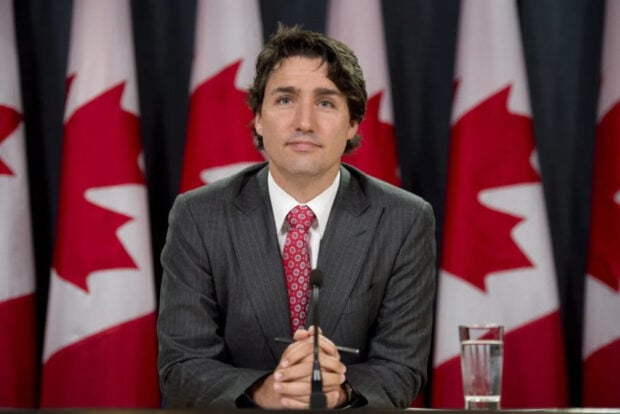Canadian PM thanks officials at start of National Public Service Week – and promises to make federal government more diverse

The Canadian prime minister Justin Trudeau has thanked the country’s 300,000 public servants for their “dedication, professionalism, and creativity” and vowed to “foster a more inclusive public service that looks like Canada and works for all Canadians”.
His comments come at the start of this year’s National Public Service Week (NPSW), which was created in 1992 with the aim of “recognising the value of the services rendered by federal public service employees” and to “acknowledge the contribution of federal public service employees to the federal administration”. It “promotes pride” in the public service of Canada “by providing internal recognition, and by raising Canadians’ awareness of the excellence of the public service”.
In a statement released yesterday, Trudeau said: “Delivering on the priorities Canadians care about: C$10-a-day child care, ambitious climate action, protecting our communities from gun violence, and so much more, would not be possible without the talented, skilled, and committed workforce that supports the Government of Canada. While the past two years have been challenging for everyone, public servants have continued to rise to the occasion by being flexible and hard-working, and delivering the critical programmes that Canadians have relied on.
“To our federal public servants, I say thank you. Your commitment to serving Canadians from coast to coast to coast with dedication, professionalism, and creativity makes our country a better place for everyone.”
Taking steps to foster a more inclusive public service
Trudeau used the opportunity to promote the federal government’s efforts to increase diversity and improve inclusion in the public service, following a series of scandals and criticisms centred on racism.
“From Service Canada locations and national parks, to home offices and living rooms in every region of the country”, the government is taking steps to foster a more inclusive public service that “looks like Canada and works for all Canadians,” he said.
He said the federal government is supporting Black and ‘racialised’ employees, Indigenous Peoples, employees with disabilities, religious minorities, and others “who continue to face barriers in the workplace”.
Read more: Canadian government announces new initiatives to boost diversity and inclusion
The government is working on increasing diversity among senior leaders and “is developing new innovative solutions for recruitment and talent management across the public service” through the Centre on Diversity and Inclusion, he added.
Progress underway – but more to be done
The federal government is facing a multi-billion dollar class-action lawsuit on behalf of over 1,000 black federal employees who say it is institutionally racist. The case is expected to be brought before a judge later this year.
Earlier this month, Canada’s public safety agencies told to stamp out institutional racism and discrimination, while a report by Canada’s National Security Transparency Advisory Group (NS-TAG) said last week called on Canadian national security forces to mend race relations ‘marred by suspicion’.
Read more: Confronted with Canada’s grim history, we must strive to do better on inclusion
As for disability and accessibility, during a GGF webinar ‘How can public and civil services support people with disabilities into senior roles?’, held last month, Yazmine Laroche, Canada’s deputy minister of public service accessibility highlighted that while 22% of the Canadian population lives with a disability and 9% are deemed to be “workforce available”, representation of people with disabilities among senior civil servants is currently just 5.6%.
The Canadian government has committed to an ambitious target of recruiting 5,000 people with disabilities by 2025.
In terms of representation of women in the senior ranks of the public service, Canada ranked top in Global Government Forum’s 2019-20 Women Leaders Index – a league table ranking G20 countries by the proportion of women amongst their senior civil servants. At the time, nearly half (48.1%) of senior public servants were women, against the G20 average of 27.7%.
GGF will be publishing the next Women Leaders Index this autumn.
Read more: Institutional racism: a global government problem?
Like this story? Sign up to Global Government Forum’s email news notifications to receive the latest updates in your inbox.























